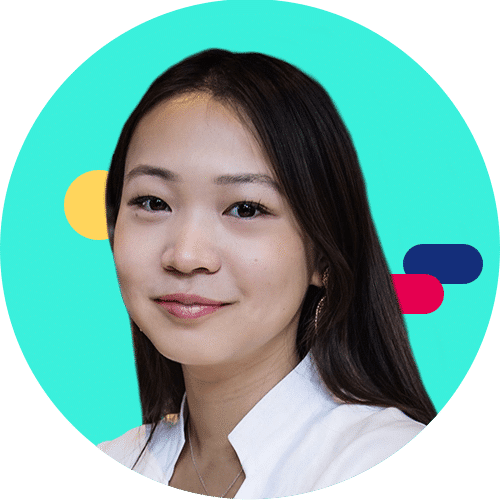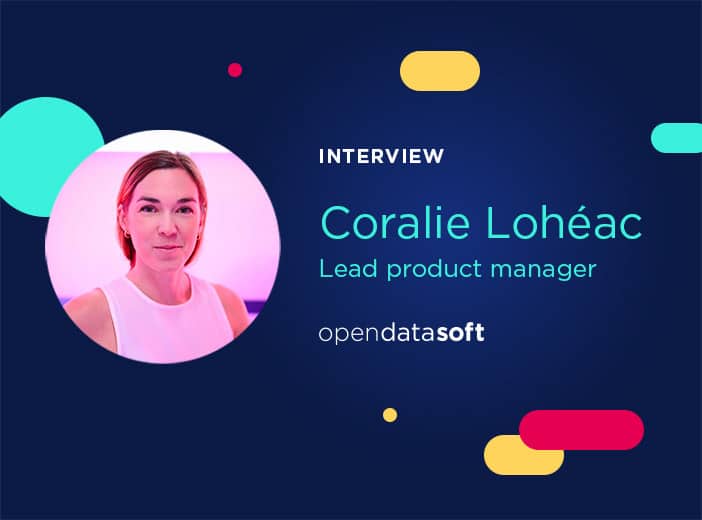Joining a Tech Startup Amidst a Global Pandemic
In the summer of 2020, I decided to join a tech startup in Paris, France amidst the global pandemic. Read more about what I learned during this unpredictable year.

2020 did not turn out exactly like I imagined. Otherwise, I would be sitting at my desk at the United Nations Environment Programme HQ in Nairobi, Kenya, drafting content for the UNEP global social media accounts, and contributing to the sustainability cause as a global citizen.
Instead, I am writing to you from a bright, sunny open workspace in the 15th district in Paris, France. To my right sits the company’s co-founder and CEO, Jean-Marc, whose low key black glasses frame remind me a lot of the late Apple CEO Steve Jobs. Next to him is Lucile, Event Manager, absorbed in her work, planning down to the minutes of the November annual international conference Data on Board that had to be changed to 100% online due to the pandemic.
All the way across the space stands Nicolas, a former French military officer who joined recently. A strange, diverse, even bizarre mix of backgrounds, experiences, and talents, but somehow it all makes sense here at Opendatasoft. After almost three months at the company, I want to share a little about how I joined a tech startup amidst a global pandemic and what I learned during this unpredictable year.
What to Do When Plan A Doesn’t Work
On my 25th birthday in 2019, I was extended an offer by the United Nations Environment Programme (UNEP) to complete a summer internship at its global headquarter in Nairobi, Kenya. This was a dream come true for me, as I had always been passionate about promoting sustainability and community development. Before that, I was a documentary video producer, traveling and filming in 67 countries over the course of two years. And before that, I was an undergraduate student at Cornell University in upstate New York, finishing my BA degree in Government and Film Studies.
Early in 2020, I had already started making plans for my summer in Nairobi – I connected with some current interns, checked out flight and vaccine information, and even found suitable apartment locations around the UN compound. The subsequent events were surprising and inconceivable at the time, but irony at its best when looking back: a virus has originated from my home country, caused a complete national lockdown and managed to spread to almost every last corner of the planet within a course of months.
It was a slow return to reality, as the UNEP put the internship program on hold. I decided to make the most out of my summer in Paris, where I was completing my master’s degree in Urban Governance at Sciences Po. By chance, I was introduced to the company Opendatasoft, a GovTech startup founded in 2012.
Although this was a chance encounter, Opendatasoft turned out to be everything I wanted to support: it is technology for good, it strives to help open public data and improve information accessibility for the community, and it already serves plenty of big cities around the world. From its home city of Paris, to Bristol, Mexico City, Vancouver, and Melbourne…the list goes on. This eight-year-old startup has achieved an impressive track record, and I was very grateful and excited to join it.
Joining A Tech Startup Amidst a Global Pandemic
WFH Doesn’t Affect the Quality of Communication
My first day was June 15th, 2020, a Monday like any other, except it was during a lockdown. I still put on a suit as I would for any first day of work, even though the first impression would be made via a video conference. The first surprise was: working from home did not affect or lessen the quality of communication I wanted with my new colleagues. In fact, my first week was packed with one-on-one meet and greet sessions with colleagues of my department and heads of all other departments. I did not feel lost at all when I first joined the organization, because the thoughtful onboarding process made it personal and familiar, and I was able to put a face to every department in case I had any questions. On my first day, the colleagues planned a “Welcome Interns” online drink for the two summer interns, Damien in the Development Team and I. Although we probably felt new and awkward at the time, we definitely felt the immediate, warm welcome to join the organization.
This sense of the ODS community has extended offscreen when the colleagues gradually came back to the office in small quantities. Although the office was much more empty compared to before the quarantine, there were always personal greetings in the morning and evenings, fun conversations over lunch, and insightful sharing of industry news throughout the day both online and in person. About one month into my internship, my German colleague Claudia commented that, “Kiki, it feels like you have been here for a long time.” This feeling was reciprocated on my part – I felt that I had been in the organization for a long time as well, because all the colleagues had been friendly, supportive and helpful from day one.
A Sense of Trust and Responsibility
My direct supervisor was Chloe, the Brand Content Manager who worked from Belgium at the time. The Marketing department head was Caroline, who was based in Boston. This meant we all checked in with each other a few times a day, but the majority of the time was spent on independent tasks. From day one, I felt trusted by both of them, as well as other department colleagues, as I was given great projects and independent responsibilities.
One of my very first projects was interviewing our city client Bristol and writing about its innovative open data initiatives. Ranked the No.2 smartest cities in the UK after London, Bristol earned the recognition in part because of the open data collaboration with ODS. I was quickly put in touch with Bristol City Council’s Marius and Steve, who were the Open Data Project Manager and Programme Coordinator, respectively, to conduct an interview.
From the beginning of the project, I was trusted to prepare the questions and schedule the interview independently. At the same time, colleagues in the Business Development and Customer Success teams who served Bristol quickly connected me to various resources to help with my research. During our one-hour interview and the subsequent follow-ups, I got to know my interviewees, two civil servants who were passionate about their communities and knowledgeable in their respective realms. As a result, I produced the article “How the UK’s Smart City Uses Open Data to Improve Traffic and Air Quality” (coming soon), which not only was something I was proud of having written, but also a great learning experience for me, who also aspire to work at the intersection of cities and technology.
At ODS, I was given great projects to work on, a sense of independence and ownership of my tasks, clear directions and feedback from my supervisors, as well as willing support from helpful colleagues. These have all made it easy for me to learn and improve my work daily.
More Than A Tech Company
If you were a liberal arts student who never took a day of programming, open data might sound like an abstract concept, but in fact it is a simple philosophy of making information available and accessible for the public.
Imagine a world without Google or Wikipedia – even though the information they provide is probably stored in books and newspapers, search engines and online cyclopedias allow us to quickly access information at a web portal we are familiar with. What ODS is doing is to provide this portal for datasets. Not only do we have the Data Network, a “world wide web” of all the public datasets available, we also create portals for our clients in city governments, energy and mobility industries, and the private sector so that they can also make their datasets available for the public or internally.
That is where data comes into tangible projects in our everyday lives. Let me show you a few examples of various-sized cities and how they use open data.
Umeå, Sweden (pop. 89 000) opened their data portal and shared energy consumption data with the citizens. The community decided collectively to close down 3 swimming pools after realizing how much energy they consumed.
Bristol (pop. 463 400) portal publishes Luftdaten Air Quality data, a dataset generated by private individuals, who operate a low cost sensor at their homes and gardens that monitors and transmits air quality data every hour.
Mexico City (pop. 8.855 mil) published a daily-updated violence against women hotline dataset. The continuing monitoring and sharing allowed journalists and community members to discover the rise in violence against women during the Covid-19 lockdown.
From small to medium to mega metropoles, there is always something you can do with relevant information and data collected throughout the daily operations of a city: water, energy, traffic, environment… not to mention health data! The 2020 pandemic has exposed the weakness and lack of data infrastructure in health systems worldwide. Lack of information and communication channels to share simple data such as “number of current patients” or “number of available beds” have not only made the government crisis response less efficient and effective, but also affected real lives (and deaths). Whether it is the health professionals, citizens, or policymakers, people need to have access to real, tangible numbers in order to gauge the impact of a crisis and prepare accordingly.
Data Can Be Fun
Ok. Maybe let’s try something a bit lighter – data can be fun too. Today, one of the ODS data hunters Cecile has taught me a really cool magic trick: how to make an API call to a dataset.
***Coders Please Skip This Section***
In honor of International Beer Day on August 7th, I decided to check out this amazing dataset on the Data Network: “Open Beer Database” which includes 5973 records of beer, in which my favorite Blue Moon special Harvest Moon Pumpkin edition also appears, as well as the all the name of breweries, their countries, locations, beer styles, alcohol content, etc.
I wanted to know how many brewers are actually presented. Cecile showed me this “API console” page, which is basically where I can ask questions to the dataset, in the same way you ask Google “what are the best restaurants in Paris.”
The language spoken by the dataset is a bit different from the human language Google uses, but it was not too complicated. I simply had to tell this console 1. I am asking about this dataset 2. I want to group all the beer records by brewers 3. I am counting the number of groups there are. Guess what, there are a whooping 1329 brewers presented in this dataset!
***Coders Please Resume Here***
Cecile was extremely patient with the data novice that I was. You can read more about her job as a data hunter here. What’s more important is that I learned it is not difficult to learn to manipulate data in order to get some information. The magic of it all is that there are a million different questions you can ask the datasets and extract different useful information. That is why having open data is the most crucial first step – having all the datasets available and easy to find means allowing everyone to ask questions that they care about. In this way, open data can harness the intelligence of the community and its people, who are the living-and-breathing experts of their neighborhoods / towns / cities.
Moral of The Story
As you can probably tell from reading between the lines, I have converted to a total data enthusiast by the end of this internship. Although I did not get to do 2020 the way I had in mind, I came away with an incredible learning experience.
A global pandemic might throw you off, and plans can be disrupted. With a global political environment that seems more fragile and volatile by the day, it looks like we are no in control of our future or anything anymore. However, if I learned one thing this summer, it’s that you have to do something that fills you with passion.
A Chinese proverb says “以不变应万变,” which translates to “react to constant changes by remaining unchanged.” It is like riding a wave while surfing instead of getting swept away. We cannot stop the world from madly spinning on – despite the uncertainties, we have to have our eye on the prize, on the thing that drives us and gets us up every morning, and on what puts a smile on our faces at the end of the day.
The philosophy is: do something for the cause you love, then you will always be in control regardless of external circumstances. Every second you spend will be meaningful, if you try to spend every second doing something you care about. I would then conclude that this summer at ODS had been a summer well-spent.
Thank you ODS for the amazing experience!



